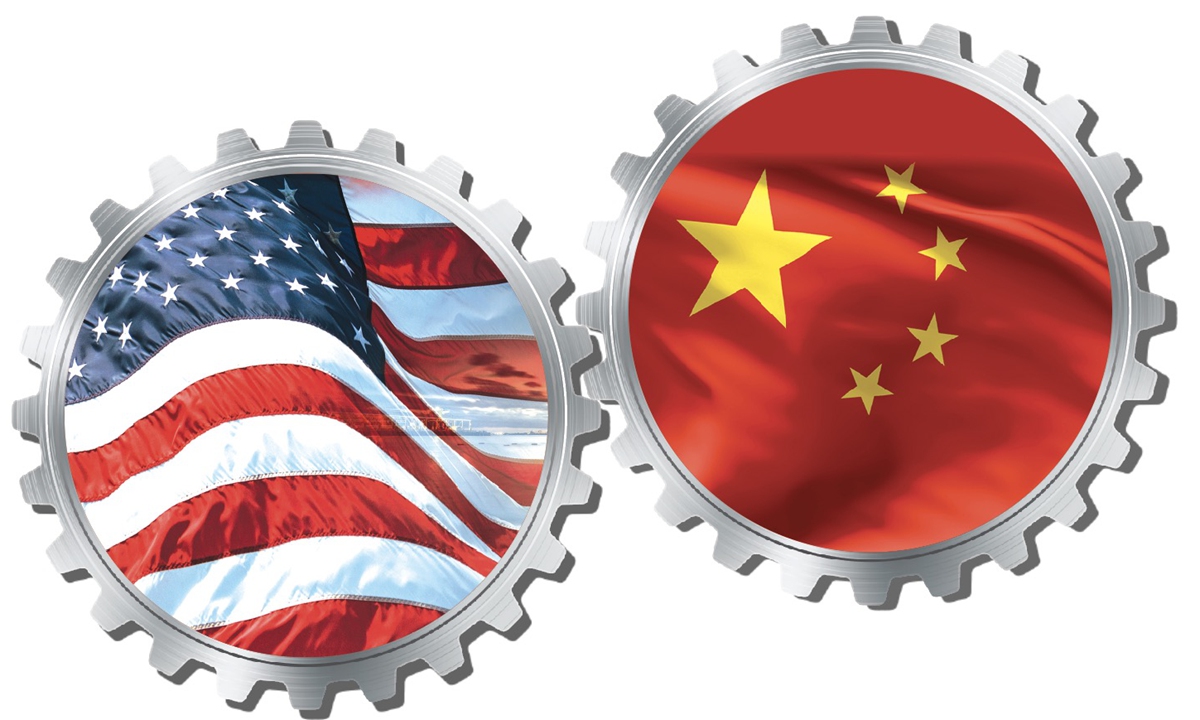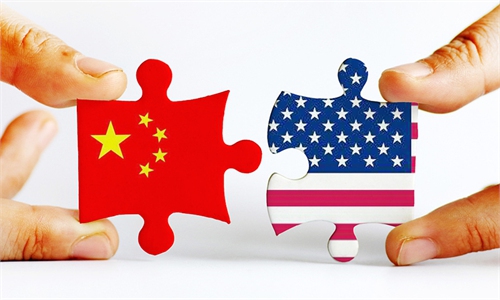China, US launch new round of trade talks amid rising expectations for improved ties

China-US Photo: VCG
China and the US are set to launch a fresh round of economic and trade talks, as Chinese Vice Premier He Lifeng and US Treasury Secretary Janet Yellen are scheduled to start two days of meetings in San Francisco on Thursday US time, in yet another major development in rapidly intensifying engagements between the two countries to stabilize bilateral ties and pave the way for potential higher-level talks.
The high-stakes meetings will likely focus on macro policies of the two countries, the global economic and trade situation, as well as major concerns the two sides hold, according to officials and analysts. Though major breakthroughs are unlikely, the talks - which come on top of a flurry of meetings and interactions between Chinese and US officials, both at the national and local levels, and businesses - further boost expectations for improved ties between the world's two biggest economies.
During the talks, the Chinese side will likely again raise major concerns over a series of US policies and actions targeting China, including sanctions against a growing number of Chinese firms, restrictions on exports of high-tech equipment to China and illegal additional tariffs on Chinese goods, according to analysts, noting that such actions have not only undermined bilateral trade cooperation but also disrupted global supply chains.
Rising expectations
The Chinese Foreign Ministry announced earlier that at the invitation of Yellen, He, who is also the Chinese lead person for China-US economic and trade affairs, will visit the US from Wednesday to Sunday. The US Treasury Department announced that Yellen will host the Chinese vice premier for two days of bilateral meetings on Thursday and Friday.
While details about the meetings in San Francisco remained scarce as of Thursday, the scheduled meetings are of profound significance in multiple aspects. This marks the first official visit to the US for He since he became vice premier in March and recently assumed a series of top economic and financial positions, including director of the Office of the Central Financial Commission.
"As both He and Yellen are in charge of economic policies, their talks will be comprehensive and focus on macro policies of the two countries as well as the global economic and trade situation," Mei Xinyu, a research fellow at the Chinese Academy of International Trade and Economic Cooperation, told the Global Times on Thursday. "While one or two rounds of talks won't solve major problems, they are very helpful in lifting expectations."
Expectations for increased engagements and improved ties are already rising, after an extended period of tension that seriously undermined bilateral as well as global cooperation. Such rising expectations for stable relations are on vivid display at the China International Import Expo (CIIE) in Shanghai, to which the US sent what has been described as its biggest delegation. Highlighting US businesses' eagerness to enter or expand in the Chinese market, more than 200 US exhibitors, including 17 from the first official US pavilion, attended the CIIE.
"As China and the US are holding high-level dialogues, what we hope to see is if China-US trade can recover," a representative from the California Almond Association, part of the official pavilion, told the Global Times on the sidelines of the CIIE. "It would be best if retaliatory tariffs on each other could be canceled through dialogue. We have always had great hopes for the Chinese market because of the huge population."
Chinese and US officials have held several rounds of talks in different areas, from diplomacy to climate change to trade. At the end of October, Chinese Foreign Minister Wang Yi visited the US and held talks with various US officials including US Secretary of State Antony Blinken. China's special envoy for climate change Xie Zhenhua and his US counterpart John Kerry have concluded multi-day talks in California, Chinese officials announced on Thursday.
In the economic and trade field, the meetings in San Francisco followed in-person talks between He and Yellen in Beijing in July, which resulted in the two sides establishing economic and financial working groups. The groups held their first meetings in late October.
Notably, coming just days before the Asia-Pacific Economic Cooperation (APEC) informal leaders' meeting in San Francisco, the new round of economic and trade talks also boosted expectations for paving the way for possible higher-level talks at the APEC meeting, analysts noted.
Many global observers are watching closely to see whether leaders of the two countries will hold bilateral talks in San Francisco. Chinese officials have not confirmed that they will take place, and have instead repeatedly stressed that both sides must work toward such a goal. "The two sides have agreed to work together for the meeting between the two Presidents in San Francisco. In the meantime, it won't be plain sailing to San Francisco, nor can we leave it to autopilot to get us there," Wang Wenbin, a spokesperson for the Chinese Foreign Ministry, said on Wednesday.
Chinese concerns
Analysts said that China has a series of major concerns regarding the US' policies toward China, including in the economic and trade field, which the US side must take seriously in order to push forward high-level talks.
In terms of economic and trade policy, "one of China's biggest concerns is decoupling," He Weiwen, a senior fellow of the Center for China and Globalization, told the Global Times on Thursday.
He said that current US officials have said they are not seeking to decouple from China - contrary to officials under former US President Donald Trump - and have instead called for "small yard, high fence" and "de-risking," but "in reality they are still moving toward decoupling." Therefore, the Chinese side will mainly focus on issues in areas such as technology, trade, investment and economy in talks with the US, as well as how to cooperate in major industries, he said.
Despite their pledges of not seeking to decouple from or contain China, US officials have continued to impose restrictions on Chinese companies, including an executive order on restrictions of high-end artificial intelligence chips last month. The US has so far added over 1,300 Chinese entities and individuals to various sanctions lists, and has kept in place illegal punitive tariffs on a large amount of Chinese products.
All of these are major issues of concern that the Chinese side will raise during the fresh economic and trade talks, analysts said.
"The US must show sincerity with these concerns, because its words alone can no longer be trusted," Mei said, noting that while China continues to open up its market, the US continues to build "small yards and high fences," which hurts not only bilateral and global trade but also the US' economic standing in the world in the long run.

